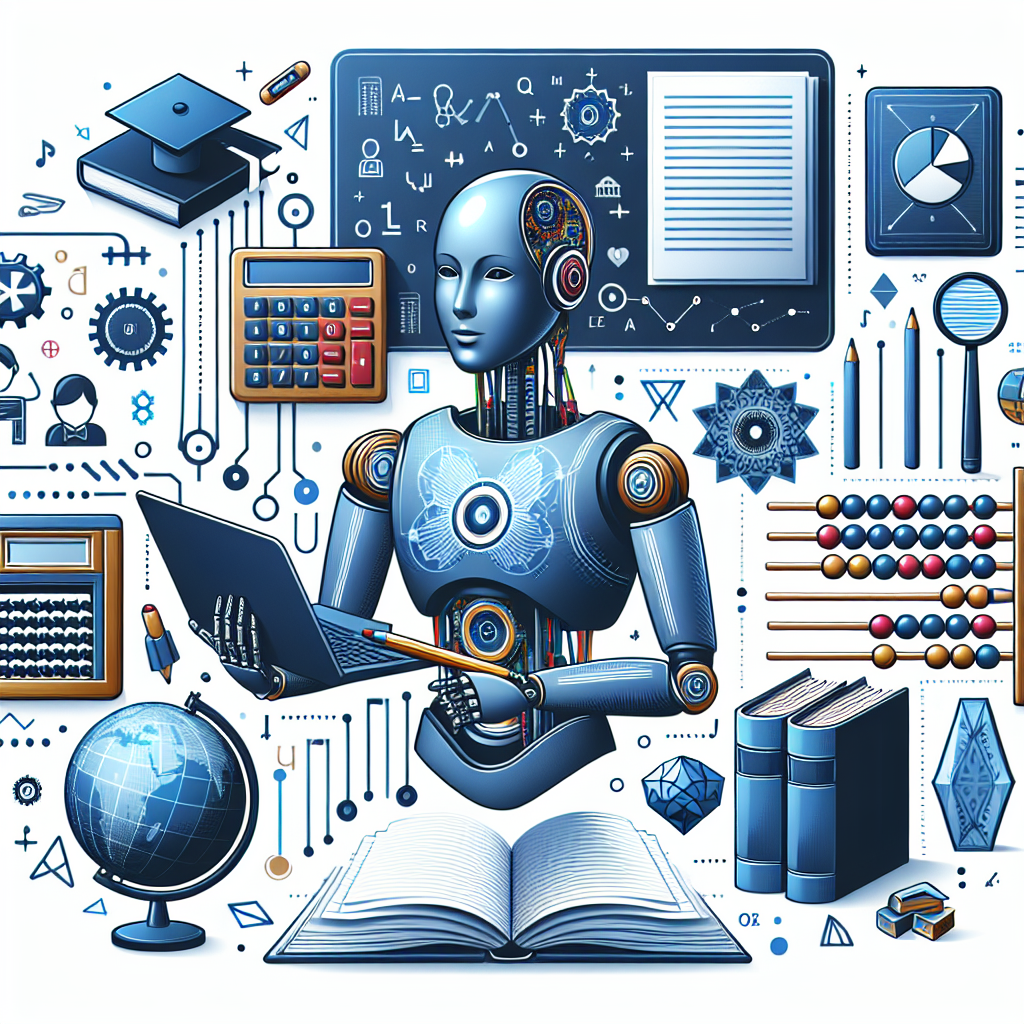Artificial General Intelligence (AGI) is a term used to describe the potential future development of AI systems that can perform any intellectual task that a human can. While current AI systems are limited to specific tasks and domains, AGI would have the ability to learn and adapt to new tasks and situations in a way that is indistinguishable from human intelligence. This has the potential to revolutionize many aspects of society, including education.
In recent years, AI has already begun to impact the way we learn. From personalized learning platforms that adapt to individual student needs, to AI-powered tutors that provide instant feedback and support, the potential for AI to transform education is immense. As AGI becomes a reality, the possibilities for education are even greater.
One of the key ways in which AGI could revolutionize education is through personalized learning. Currently, the traditional education system is based on a one-size-fits-all approach, where all students are taught the same material at the same pace. This can lead to students falling behind or becoming disengaged if the material is too easy. AGI has the potential to change this by providing personalized learning experiences that adapt to each student’s individual needs and learning style. By analyzing data on how each student learns best, AGI systems could tailor educational content and activities to maximize learning outcomes.
Another way in which AGI could transform education is through the creation of intelligent tutoring systems. These systems could provide students with instant feedback on their work, identify areas for improvement, and offer personalized support to help them succeed. By harnessing the power of AGI, these systems could provide students with a level of support and guidance that is currently impossible to achieve in a traditional classroom setting.
AGI could also revolutionize the way we assess student learning. Traditional exams and standardized tests are often criticized for their one-size-fits-all approach and their focus on rote memorization. AGI could change this by providing more nuanced and personalized assessments that measure a wider range of skills and knowledge. For example, AGI systems could analyze a student’s writing or problem-solving skills in real-time, providing feedback on areas for improvement and suggesting ways to enhance their learning.
In addition to transforming how we learn and assess student progress, AGI could also revolutionize the role of teachers. While some fear that AI will replace human teachers, the reality is likely to be more nuanced. AGI systems could support teachers by providing them with valuable insights into student learning, helping them to tailor their instruction to meet the needs of individual students. This could free up teachers to spend more time on activities that require human creativity and empathy, such as mentoring, coaching, and building relationships with students.
Despite the potential benefits of AGI in education, there are also challenges and concerns that need to be addressed. One major concern is the potential for bias in AI systems. If AGI systems are trained on biased data, they may perpetuate existing inequalities in education. It will be important for developers to ensure that AGI systems are fair and unbiased, and that they do not reinforce stereotypes or discriminate against certain groups of students.
Another concern is the potential for AGI to replace human teachers. While AI systems can provide valuable support and guidance, there is no substitute for the expertise, creativity, and empathy that human teachers bring to the classroom. It will be important for educators to work alongside AGI systems, using them as tools to enhance their teaching practice rather than as replacements for human interaction.
Despite these challenges, the potential for AGI to revolutionize education is immense. By harnessing the power of AI, we can create a more personalized, engaging, and effective learning experience for students of all ages. As AGI continues to develop, it will be important for educators, policymakers, and technologists to work together to ensure that these new technologies are used in ways that benefit all students and promote a more equitable and inclusive education system.
FAQs:
Q: Will AGI replace human teachers?
A: While AGI has the potential to support and enhance the work of human teachers, it is unlikely to replace them entirely. Human teachers bring a unique set of skills and qualities to the classroom, such as creativity, empathy, and the ability to build relationships with students, that AI systems cannot replicate.
Q: How will AGI impact student learning?
A: AGI has the potential to personalize learning experiences for students, providing them with tailored support and feedback that is currently impossible to achieve in a traditional classroom setting. By analyzing data on how each student learns best, AGI systems could help students to maximize their learning outcomes and reach their full potential.
Q: What are the potential challenges of using AGI in education?
A: One major challenge is the potential for bias in AI systems. If AGI systems are trained on biased data, they may perpetuate existing inequalities in education. It will be important for developers to ensure that AGI systems are fair and unbiased, and that they do not reinforce stereotypes or discriminate against certain groups of students.
Q: How can educators prepare for the integration of AGI in education?
A: Educators can prepare for the integration of AGI in education by staying informed about the latest developments in AI and by seeking out professional development opportunities to learn how to incorporate AI technologies into their teaching practice. By working alongside AGI systems, educators can harness the power of AI to enhance their teaching and support student learning.

